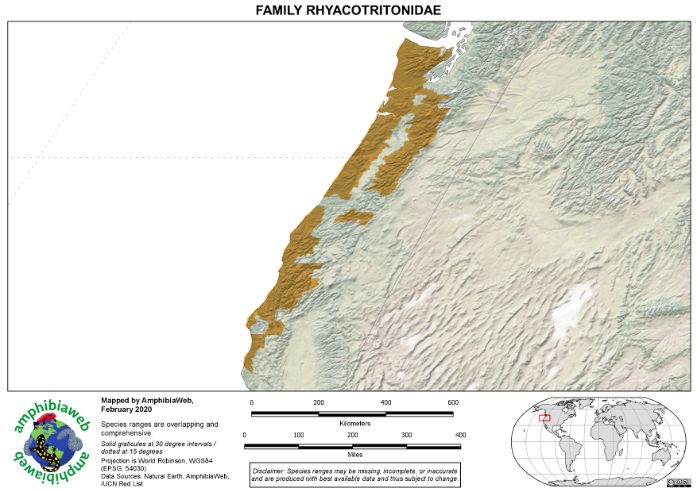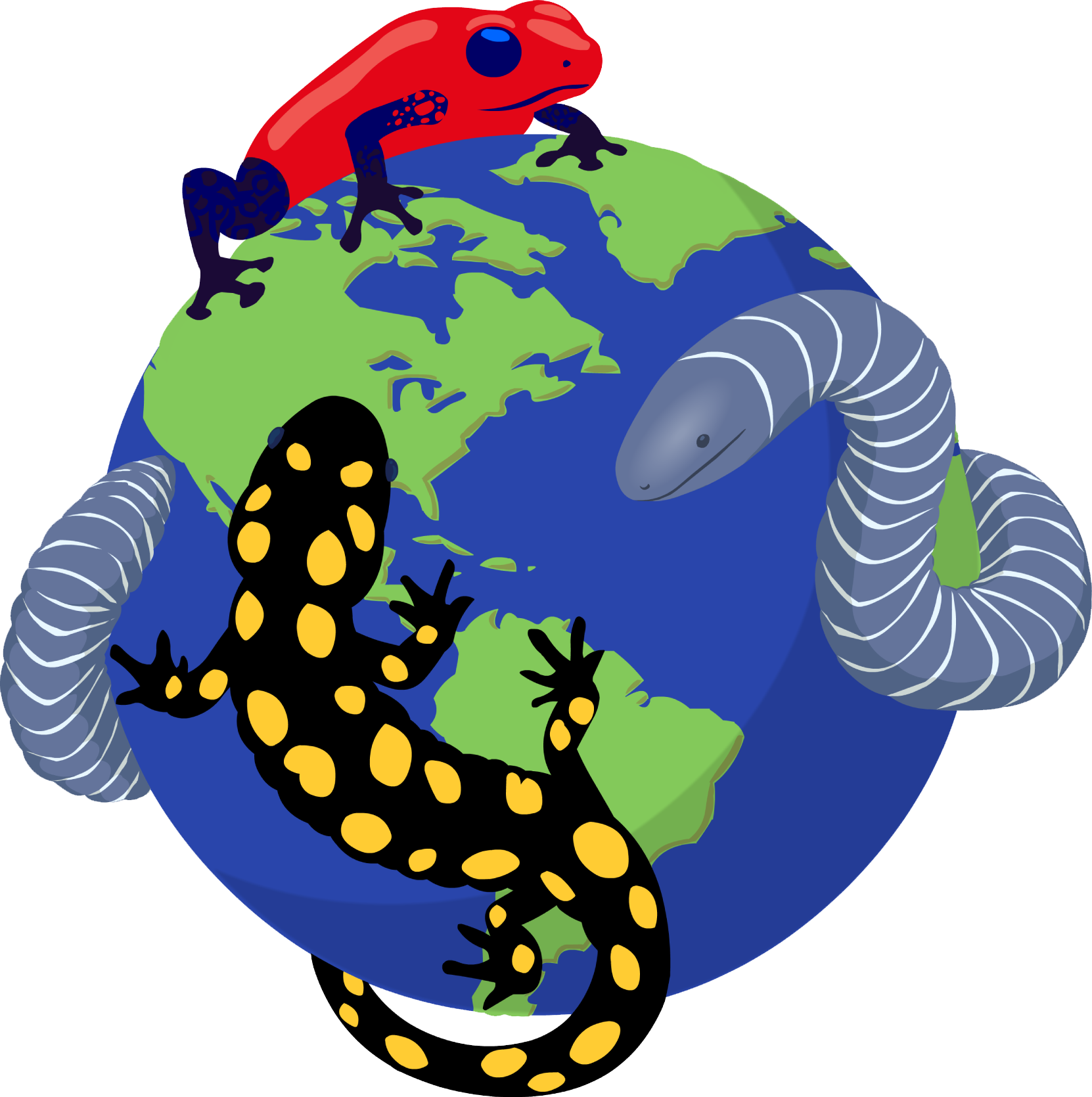Rhyacotritonidae |
4 species in 1 genus
Commonly Called Torrent Salamanders, Seep Salamanders

Rhyacotriton olympicus
Photo by John P. Clare
(Click for family gallery)This monotypic family are species of small (ca. <80 mm snout-vent length) semi-aquatic salamanders with aquatic larvae. They may represent remnants of an early radiation of salamanders and are found exclusively in old-growth humid forests of conifers. Members are small and stocky bodied, with large eyes and a semi-aquatic lifestyle and vestigial lungs. Fertilization is internal, and large, unpigmented eggs are laid beneath rocks or in crevices of cold, clear water.
They occur exclusively in the coastal coniferous forests of the Pacific Northwest in North America. These species are genetically distinct from one another and generally do not occur sympatrically.
Written by AmphibiaWebNotable Family Characteristics
- Found in cold, shaded streams or nearby leaf litter in temperate wet forests of typically old-growth conifers
- Larvae fully aquatic and may take 3-5 years to metamorphosis
- Internal fertilization
- Morphological characters are: 1) squared glands posterior to vent in males; 2) absence of operculum and associated opercular muscle (only seen in some hynobiids); 3) reduced lungs (as seen in plethodontids and hynobiids)
- Coloration is typically dark dorsum, some species may be flecked, and bright yellow / orange or yellow-green venter
- Distribution limited to western North America, in coastal Pacific Northwest

Cartography Credit: Zoe Yoo, UC Berkeley
Range maps sources: AmphibiaWeb, UC Berkeley, and IUCN RedListRelevant Reference
Stebbins, R. C. 2003. A Field Guide to Western Reptiles and Amphibians. Third Edition. Boston: Houghton Mifflin Company.
Genus Rhyacotriton (4 species)
Rhyacotriton cascadae account photos no sound/video Rhyacotriton kezeri account photos no sound/video Rhyacotriton olympicus account photos no sound/video Rhyacotriton variegatus account photos no sound/video
Citation: AmphibiaWeb: Information on amphibian biology and conservation. [web application]. Berkeley, California: AmphibiaWeb. Available: https://amphibiaweb.org/. (Accessed:
AmphibiaWeb's policy on data use.
